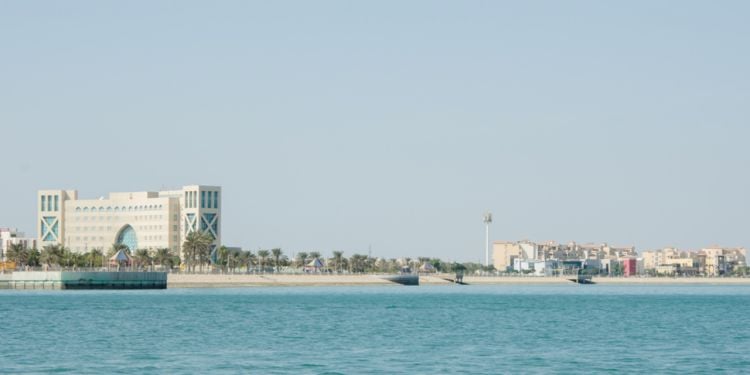
Jubail is a city in the eastern province of Saudi Arabia, and it has a population of around 500,000 people. It is also home to the largest industrial city in the world — the Saudi Arabia Jubail Industrial City. Due to its rapid growth as one of Saudi Arabia's major industrial hubs, Jubail is a highly populated expat destination in Saudi Arabia. If you are interested in working in Jubail, this article is a good place to start your research.
Key industries in Jubail
Jubail is home to some of the biggest petrochemical companies in the region. Both SABIC and MARAFIC can be found in the region. Jubail has become a highly populated expat destination due to its rapid growth into one of Saudi's industrial hubs.
The petrochemical industry is where most of the jobs in Jubail are available. However, with the city's rapid development vacancies in civil engineering, city planning and construction have become increasingly more in demand. Service jobs in entertainment, leisure, and dining have also been steadily growing in the past years.
In 1975, it was decided that Jubail should turn into an industrial hub. Indeed, this city has managed to emerge as one of the leading industrial centers in the Middle East thanks to various fields such as the production of fertilizers, steel, import and export, etc.
Job hunting in Jubail
In general, the best and most efficient way to look for job vacancies in Jubail is online. Internet searches and region-specific job searches have yielded limitless numbers of jobs. You can check the webpage of the Royal Commission for Jubail and Yanbu for general and tourism-related information about the city, but also for career and investment opportunities. You should also check out some of the popular job search websites in the region: Bayt, Naukrigulf, Mihnati, and others. International career websites also list job offers: check out MonsterGulf, Glassdoor, Indeed, and others.
Another way to go about a job search is to contact the companies in Saudi Arabia that you think can benefit from your expertise directly with your CV and cover Letter. You can run an online search for companies in your field operating in Jubail and go on to research their websites and social media pages. If you find any current vacancies or possibilities for future ones, reach out to the companies' hiring managers with your application, emphasizing why you would like to work for them.
How to apply for a job in Jubail
When applying for a job in Jubail, keep in mind that local employers need to justify hiring you over Saudi nationals due to the Saudization policies. This is why it is important that you highlight the specific skills required for the position you are applying for — both in your CV and cover letter.
Here are a few tips for applying for a job in Jubail:
If you are applying for a position looking specifically for expats, you can send out a standard Western-style CV. It can be in a chronological format (where you list your work experience in reverse order: starting from the latest position); skill-based format (where you center your CV around the skills and expertise that you want to highlight) or mixed-format (a combination of elements from both formats described above).
You can send out your CV and cover letter in English — unless the position requires knowledge of Arabic, in which case it's a good idea to attach copies of your CV and cover letter in Arabic. If your knowledge of Arabic is limited, it is definitely a good idea to take a language course, which can help you stand out among other applicants and gain access to more job opportunities across Saudi Arabia.
When writing your cover letter, try to make it as specific as possible to the position you are applying for. Highlight what makes you the best candidate for the job including relevant experience, skill sets and career goals.
When composing your CV, avoid references to things that can be considered sensitive locally. For instance, avoid mentioning religious groups and activities or certain countries like Israel or Iran.
Finally, invest some time in pre-application research. Find out as much as you can about the company and the position you are applying for. Take note of what the job requires and emphasize the relevant skills in your CV and cover letter. It's also a good idea to check out the website of the company you are applying to — as well as their social media pages. This can give you lots of additional information that you can use in your application or interview.
How to apply for a work visa to Saudi Arabia
To be legally employed in Saudi Arabia, you will need to apply for an Iqama. The Iqama is basically a residence permit that lets you stay and work in the country for the long term.
If your application is successful, you will receive an Iqama card that will contain the following information:
- Your legal name and nationality;
- Your date of birth;
- The Iqama number;
- Your religion;
- Your job title and the name of your employer.
Important:
You must carry your Iqama card with you at all times. Failure to present your Iqama card when asked by the police can result in a fine of upwards of SAR 3,000 and even a jail term of up to six months.
In case your Iqama card is lost or has been stolen, you need to immediately report it missing. Failure to do so can result in a fine of upwards of SAR 3,000. Additionally, overstaying your Iqama can result in deportation.
While this paragraph describes how you can apply for an Iqama, it's actually your employer who will apply for one for you. They will need to start by submitting an application to the Ministry of Labour and Social Development. If the application is approved, they will receive a Visa Authorisation number and a Power of Attorney via the Ministry of Foreign Affairs in Saudi Arabia.
Once you arrive in the country, your employer will need to apply for the Iqama visa for you within 90 days. When you receive your Iqama, you can go on and apply for residence permits for your family. Note that your family's residence permits will be under your Iqama and will not be sponsored by your employer.
Important:
Note that working in Saudi Arabia without an Iqama is illegal and can result in serious consequences — from a SAR 10,000 fine to immediate deportation and even arrest. Your employer will also be financially liable if they have allowed you to work without proper documentation and their business license may be revoked. This is why it is essential that your Iqama is valid all throughout your employment and your employer makes all Iqama renewal arrangements on time. Learn about Iqama System Violations & Penalties.
What is a special privilege Iqama?
The Council of Ministers recently approved the special privilege Iqama law. This type of Iqama is given to highly-qualified foreigners wishing to work in Saudi Arabia.
The law lets special Iqama holders enjoy additional privileges like owning real estate, renting out properties, etc. A Special Privilege Iqama Center has been created to regulate everything related to this type of Iqama.
What is a working day like in Saudi Arabia?
When employed in Saudi Arabia, your typical working day will probably last from 8 am to 6 pm or from 7 am to 7 pm with a longer lunch break. Working days are from Sunday to Thursday. The maximum daily hours for an employee is 8 hours.
By law, the working week lasts for a maximum of 48 hours and is shortened to 30 hours per week during the holy month of Ramadan.
You will generally get 21 days of paid leave — and after five years of continuous employment, this goes up to 30 days. Additionally, you can benefit from three major public holidays: how many days you get off work depend on whether you are working in the public or private sector:
- Eid Al Fitr (three to seven days);
- Eid Al Adha (three to seven days);
- Saudi National Day (23 September);
- Founding Day (22 February).
Work-life balance and workers' rights in Saudi Arabia
If you are looking for work-life balance, Jubail (and Saudi Arabia in general) may not be the best place to live and work. Here, you will often be considered “on call” even past your working hours. Flexible working hours and remote work options remain very limited.
Another thing you should keep in mind is that, unfortunately, workers' rights violations are quite common in the country — especially when it comes to manual and seasonal labor. While the practice of confiscation of the employee's passport by a Saudi employer is not as prevalent as it might have been in the past, you will still require your employer's approval before leaving the country. Essentially, you will need to obtain an exit/re-entry visa if you are going to leave the country. This will have to be done through your HR. This means that you will have to inform your company in advance before crossing any border.
Yet another important thing to be aware of is that there are no trade or labor unions in the country. This makes it even more complicated to solve work-related disputes.
Work etiquette in Saudi Arabia
While Saudi Arabia and its major cities like Jubail are now more open than ever before to new business practices and foreign cultural influence, everyday interactions here remain guided by tradition — and this is also true of the workplace.
Hierarchy plays an essential role in the organization of a local workplace — key decisions are always made by high-level managers behind closed doors.
As a foreign employee, and especially if you are a new hire, you will not be expected to take on too much initiative outside of your specific job responsibilities. Questioning strategy and the decisions made by senior management is not recommended and might negatively affect your position in the company. Note that a lot of companies in Saudi Arabia are family businesses and nepotism is part and parcel of the working structure.
Work meetings and negotiations tend to be on the longer side and may include a lot of formalities and small talk — be ready to drink a lot of coffee and listen rather than participate, especially if you are in a junior position. Disagreeing with your superior in a meeting or during negotiations is a big no-no.
Keep in mind that networking is a key part of the local workspace. Meeting the right people and making a good impression can often open doors to new interesting offers and career opportunities. For this reason, do not shy away from business forums, professional conferences in your field and other events where you might make the right connections.
Women in the workplace in Saudi Arabia
One of the essential revisions of Saudi Vision 2030 is to get more women involved in the workplace and the country's economy. However, until quite recently, the role that women played in the local workplace was quite limited.
As of now, close to one in three employees in Saudi Arabia are now women. This number is expected to grow by 35% by 2030. However, the positive development of more women entering the workplace is, unfortunately, offset by a substantial gender pay gap: on average, in 2021, women in Saudi Arabia earned over 50% less compared to their male colleagues.
We do our best to provide accurate and up to date information. However, if you have noticed any inaccuracies in this article, please let us know in the comments section below.








